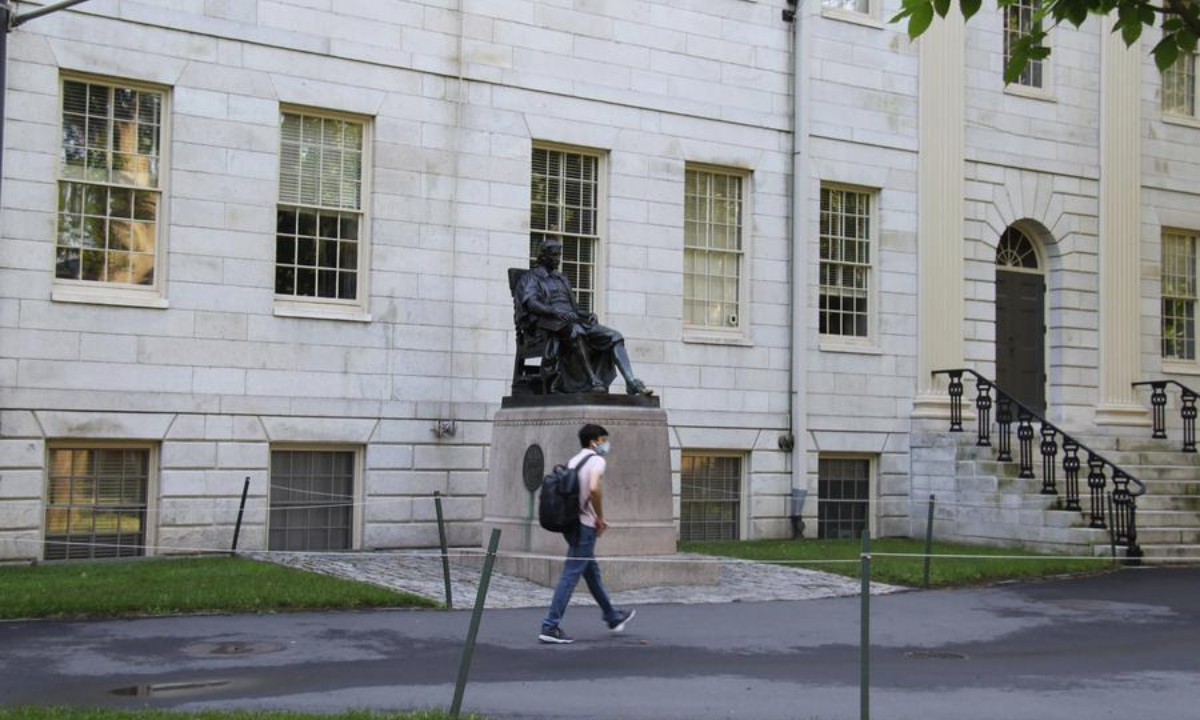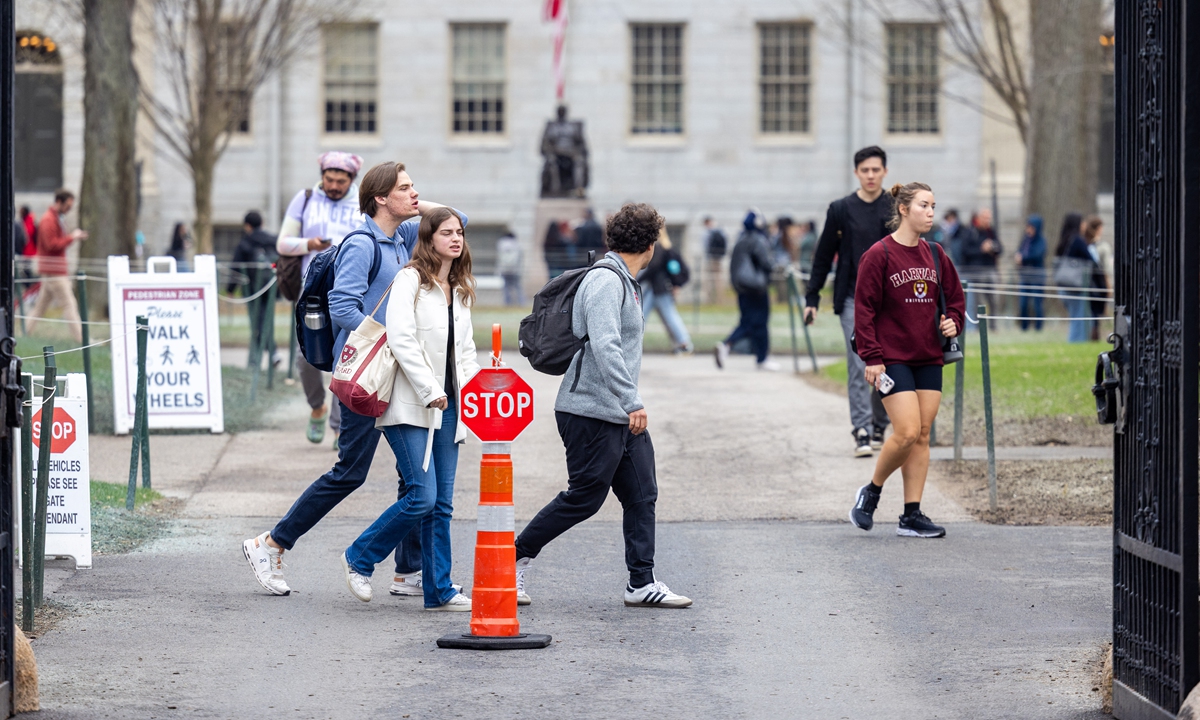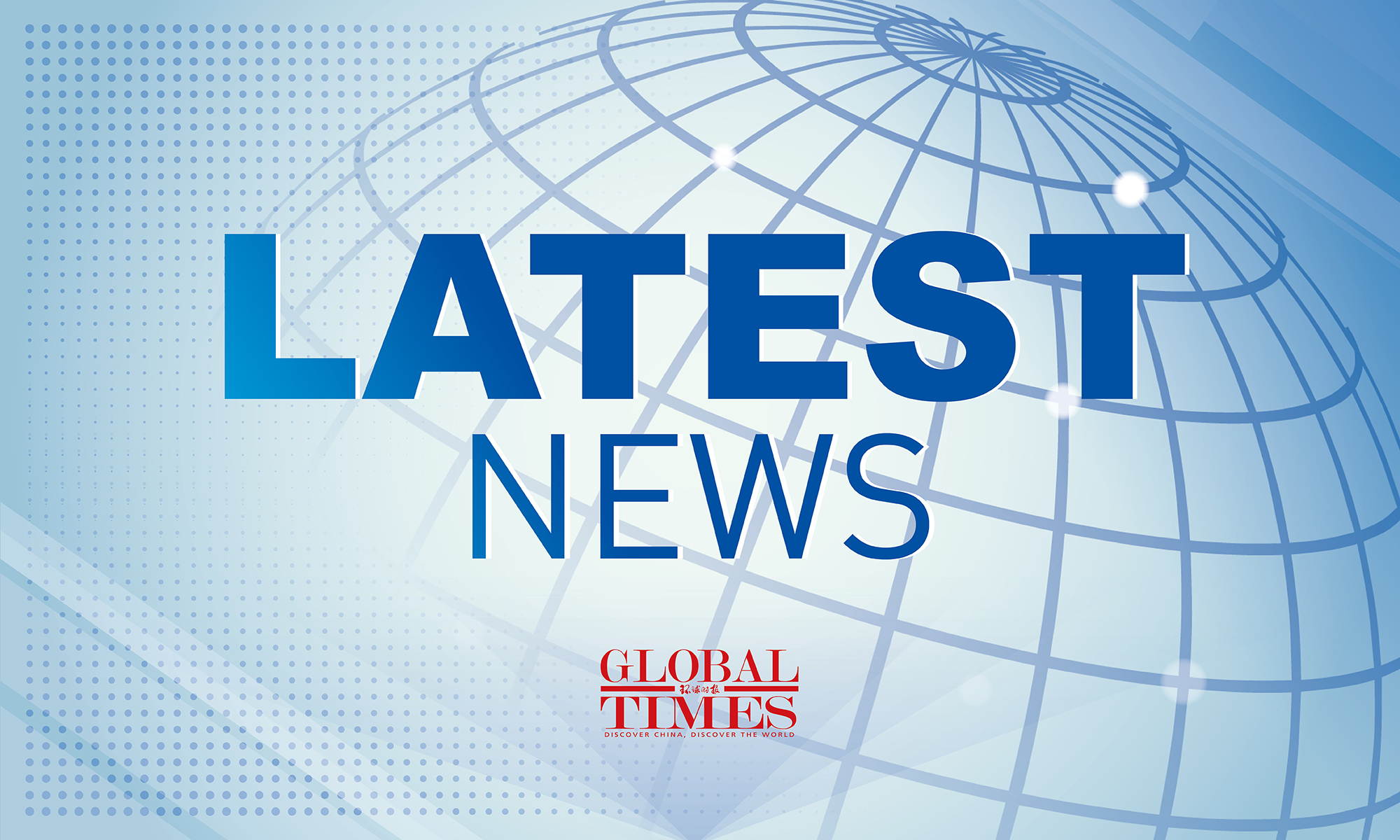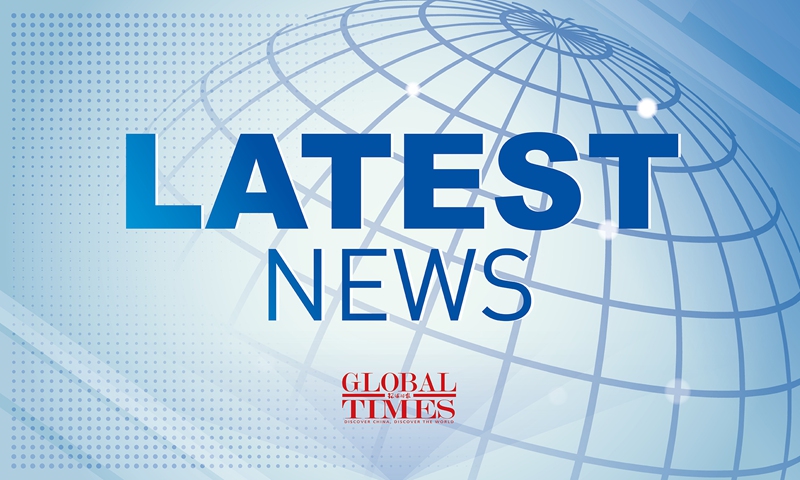US government’s Harvard foreign student ban sparks global backlash
China slams foreign student ban, vows to protect legitimate rights of Chinese students, scholars abroad

A student walks on the campus of Harvard University in Cambridge of Massachusetts, the United States, on July 14, 2020. (Photo by Fan Lin/Xinhua)
China slammed on Friday the US government's ban on Harvard University from enrolling foreign students, saying that China has always opposed the politicization of educational cooperation and will safeguard the legitimate rights and interests of Chinese students and scholars abroad.
The administration of US President Donald Trump on Thursday revoked Harvard University's certification under the Student and Exchange Visitor Program (SEVP), effectively barring the institution from enrolling new international students, the Xinhua News Agency reported.
US Department of Homeland Security Secretary Kristi Noem announced the decision, saying that it serves as a warning to all universities and academic institutions across the country, adding that the privilege was revoked due to Harvard's repeated failure to comply with federal law, Xinhua said.
In response, Harvard issued a statement calling the administration's action unlawful and harmful, according to Xinhua.
Harvard said it is filing a lawsuit over the US government's move to block it from enrolling international students, Bloomberg report on Friday. In the lawsuit, which was filed in Massachusetts federal court Friday, the university said the move violates its First Amendment and due process rights, among others, according to the US media report.
Politicizing education co-op
According to a statement posted on US Homeland Security, by ordering DHS to terminate the Harvard University's Student and Exchange Visitor Program (SEVP) certification, it means Harvard can no longer enroll foreign students and existing foreign students must transfer or lose their legal status.
It also claims that Harvard is being held accountable for "collaboration with the Chinese Communist Party, fostering violence, antisemitism, and pro-terrorist conduct from students on its campus."
When asked how China views the US government's move to block Harvard University from enrolling foreign students, since Chinese students accounted for 20 percent of the university's international students, Chinese Foreign Ministry spokesperson Mao Ning at a press briefing said Friday that China-US education cooperation benefits both sides. China opposes politicizing education cooperation.
What the US seeks to do will undoubtedly hurt its own image and reputation in the world. China will firmly protect the legitimate and lawful rights and interests of Chinese students and scholars overseas, Mao said.
Also at the same press briefing, when asked about US lawmakers sending a letter to Harvard President Alan Garber demanding information on the university's alleged ties with the Chinese government and military — including claims that it hosted and trained members of the Xinjiang Production and Construction Corps, which was placed on the US sanctions list in 2020, Mao reiterated that China opposes politicizing education cooperation and groundlessly attacking and vilifying China. "The sanctions you mentioned are illicit and should be lifted immediately."
Global backlash
CNN said the decision could impact more than a quarter of Harvard's heavily international student body, who have been flung into anxiety and confusion by the announcement.
Professors warn a mass exodus of foreign students threatens to stifle the academic prowess of the institution even as it battles against the administration for its ideological autonomy, CNN reported.
The New York Times said the move intensifies the administration's attempt to upend the culture of higher education by directly subverting the ability of one of the nation's premier universities to attract the best and brightest students from all over the world.
That capability, across all of academia, has long been one of the greatest sources of academic, economic and scientific strength in America, the NYT said.
"Right now, there's a lot of tension—especially in group chats, where people are confused and overwhelmed," said a Chinese scholar conducting postdoctoral research at Harvard.
"No one really knows how to respond, because we understand the policy is mainly directed at the university, not the students, so much depends on how the school reacts. If the university pushes back, it's unclear how the government will enforce it. Most students are feeling lost and unsure of what to do next," the scholar, who wishes to remain anonymous, told the Global Times.
The impact on scientific research and academia has been profound since the current US administration took office—almost like dismantling the very foundation of US higher education, the Chinese scholar said.
"American universities used to attract top global talent thanks to ample funding and an international academic environment, but those advantages have been steadily eroding under the current administration," the scholar said, adding that international students are also feeling increasingly uneasy as they face growing uncertainty about their future in the US.
This uncertainty has also been felt by other international students. The Australian Financial Review (AFR) reported on Friday that around 116 Australian students have been unwittingly caught up in the surprise decision.
Vicki Thomson, chief executive of the Group of Eight Australian universities group, said the lives of many Australians will be affected by the turn of events, the AFR said.
"We think there are several hundred students about to head over there, mainly more summer school, and have had their plans thrown into chaos," Thomson was quoted as saying in the Australian media report.
Harvard enrolls almost 6,800 foreign students at its campus in Cambridge, Massachusetts, accounting for more than a quarter of its student body. Most are graduate students, coming from more than 100 countries, the AP News said.
The Trump administration's clash with Harvard, the nation's oldest and wealthiest university, has intensified since it became the first to openly defy White House demands for changes at elite schools it has criticized as hotbeds of liberalism and antisemitism, the AP News said.
The federal government has cut $2.6 billion in federal grants to Harvard, forcing it to self-fund much of its sprawling research operation. The US president has said he wants to strip the university of its tax-exempt status, according to the AP News.
But the university's leadership argues many of the requests, including an "audit" of the "viewpoint" of its students and staff, go far beyond the role of the federal government and may violate Harvard's constitutional rights, CNN said.
"I'm supposed to graduate in exactly a week and I'm definitely quite nervous," a Harvard undergraduate student from Canada was quoted as saying in a report by the NPR.
The student did not want to be identified because she fears retaliation from the US government, and went on to say, "This does a lot more than threaten our education. This has made international students feel like outsiders at Harvard, when it's actually the opposite situation. We bring cultural perspectives and research contributions that strengthen the university," according to the NPR report.
"I was shaken by this news today and still haven't recovered. I feel both angry and heartbroken," said another Chinese student from Harvard in a post shared on social media.
Such a wonderful place, such an excellent school and academic environment — so casually trampled on. Such a great group of international students and visiting scholars — taken hostage like this. It's utterly shameless and despicable beyond words, the Chinese student said.
What's next
Pippa Norris, an author and Paul F McGuire lecturer in comparative politics at Harvard's Kennedy School of Government, was quoted as saying in a report by the Guardian on Thursday that this halt is going to benefit Oxford and Cambridge and many other academic institutions, "because of course, the best of the brightest could apply wherever they would. America, again, is going to have problems as a result."
"…very bad decision, very bad. And it's self-defeating because it is these exchanges that benefit not just the students, but the companies that they will work for," Kyung-wha Kang, President and CEO of the Asia Society and former foreign minister of South Korea, told the Global Times on Friday.
"So, I would say of all the steps that the US government is taking, this, I think, is manifestly an ill-considered one. I think we need to really try to roll the stack and really invigorate the space for student exchanges, scientific exchanges, and so on," Kang said.
Zhu Keliang, head of the Silicon Valley office of DeHeng Law Offices, told the Global Times that the US government's abrupt action gave Harvard no time or opportunity to respond, potentially violating the Administrative Procedure Act.
"Harvard could seek a court injunction to halt the measure," Zhu said, noting that international students facing the risk of losing their visa status can wait for the university's legal action or file lawsuits independently, Zhu said.



